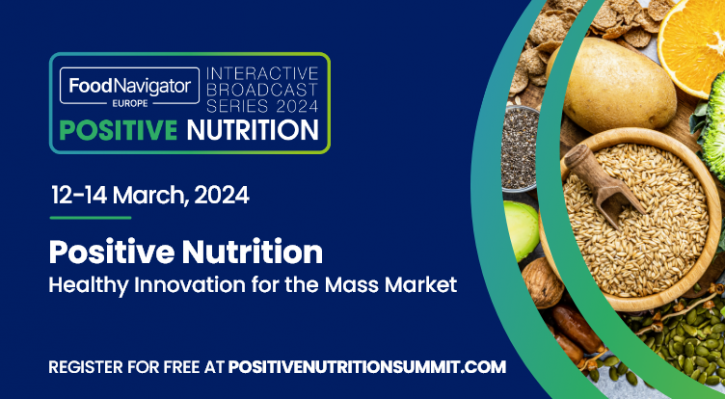Ben & Jerry’s launched its first non-dairy ice cream options in 2016. 4 years later, the model was acquired by FMCG Unilever, and in the present day the model’s vegan vary has grown to twenty flavours.
For Ben & Jerry’s, non-dairy ice lotions now make up 25% of its international product portfolio.
The choice to develop its non-dairy vary is probably going fuelled by two elements: client demand (though no vegan providing made it into Ben & Jerry’s prime 10 flavours of 2023 within the UK) and Unilever’s dedication to realize annual gross sales of €1.5bn from plant-based merchandise by 2025.
To raised mimic its dairy ice cream vary, and in the end win over extra shoppers, Unilever has been experimenting with Ben & Jerry’s non-dairy base. Having trialled as much as 70 completely different flavour mixtures, the corporate believes it has discovered its reply in oat.
“It’s been a protracted journey,” stated Unilever flavour specialist João Piva. “However we’re assured we’ve created the best-tasting non-dairy base for Ben & Jerry’s ice cream but.”
What was improper with Ben & Jerry’s earlier dairy-free ice cream base?
Ben & Jerry’s vegan ice cream bases have historically been made with both almonds or sunflower butter. However to raised cater to plant-based and flexitarians, the corporate examined different substances with reformulation potential.
“With almond you may expertise a nutty aftertaste,” defined Piva. “And as chunks and sauces are a signature of Ben & Jerry’s flavoured ice lotions, we had been eager to discover a base that allow our hero substances shine extra.”
Unilever was additionally involved concerning the texture of its bases, having performed a survey amongst shoppers. “Client testing instructed us that non-dairy ice cream merchandise can typically really feel thinner or watery,” an organization spokesperson instructed FoodNavigator.
“We needed to seek out an ingredient that might shut that texture hole.”
The purpose was to seek out an ingredient and base formulation that ensured the model’s ‘signature’ style was maintained. The crew – made up of Piva, Unilever science and expertise consultants and Ben & Jerry’s US contingent – believes it has achieved that with oats.
Plant-based ice cream takes a shine to oats
Oats are usually not new to plant-based dairy, nor new to plant-based ice cream. Between April 2022 and March 2023, Mintel knowledge suggests oats had been used as a base ingredient in dairy-free ice cream in round three in ten (27%) launches. The share of European plant-based ice cream launches with oats as an ingredient was virtually double the share of launches with almonds in that very same interval.
A notable instance consists of Oatly’s Delicate Serve product, which launched final 12 months.
The news on reformulation challenges
Reformulating ice cream – whether or not dairy or not – isn’t any imply feat. The matrix should enable for ample ice content material to allow firmness, but additionally soften and coat the mouth in hotter circumstances. “Ice cream is a technical product, and that you must perceive the half every ingredient performs, in any other case you find yourself mixing good substances with out making a great ice cream,” defined Piva.
Even simply when it comes to look, the crew claims to have identified they’d discovered the winner once they began scooping the oat-based ice cream, “The ice cream expertise doesn’t begin along with your first chunk. You begin consuming along with your eyes.
“The oat base was smoother and richer, which meant we anticipated a greater texture, even earlier than we took a spoonful.”
Client testing suggests shoppers would purchase the product, as a result of the consuming expertise is ‘nearly as good as dairy’. The brand new formulation might be used within the model’s tubs and scoop retailers worldwide from spring 2024.
Unilever busy in reformulation throughout Magnum, Wall’s and Ben & Jerry’s
Ben & Jerry’s just isn’t the one ice cream model Unilever has been reformulating of late. The FMCG main is reformulating its ice lotions throughout the board to face up to hotter temperatures, that means it may well scale back the price and vitality use of its freezer cupboards.
Unilever owns shut to 3 million ice cream cupboards, which it leases out to sellers worldwide. The business customary temperature in lots of markets is -18˚C, however Unilever desires to heat up its freezers to -12˚C. The vitality advantages in doing so are huge: ice cream contributes to twenty% of Unilever’s greenhouse gasoline (GHG) emissions, with roughly half of that coming from its cupboards.
Since Unilever leases out its cupboards, it wants different ice cream manufacturers to additionally reformulate their merchandise to face up to hotter temperatures. To encourage reformulation efforts, the corporate is granting a free non-exclusive license to the ice cream business for 12 reformulation patents.
“By means of collaboration, we consider we will scale back the ice cream chilly chain’s affect on the surroundings, while persevering with to ship prime quality merchandise for our shoppers,” a Unilever spokesperson instructed us.
Eager to be taught extra about plant-based dairy and reformulation? Tune into our upcoming Constructive Vitamin occasion 12-14 March 2024.


